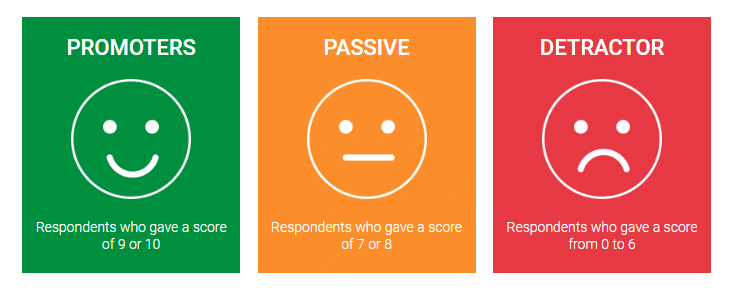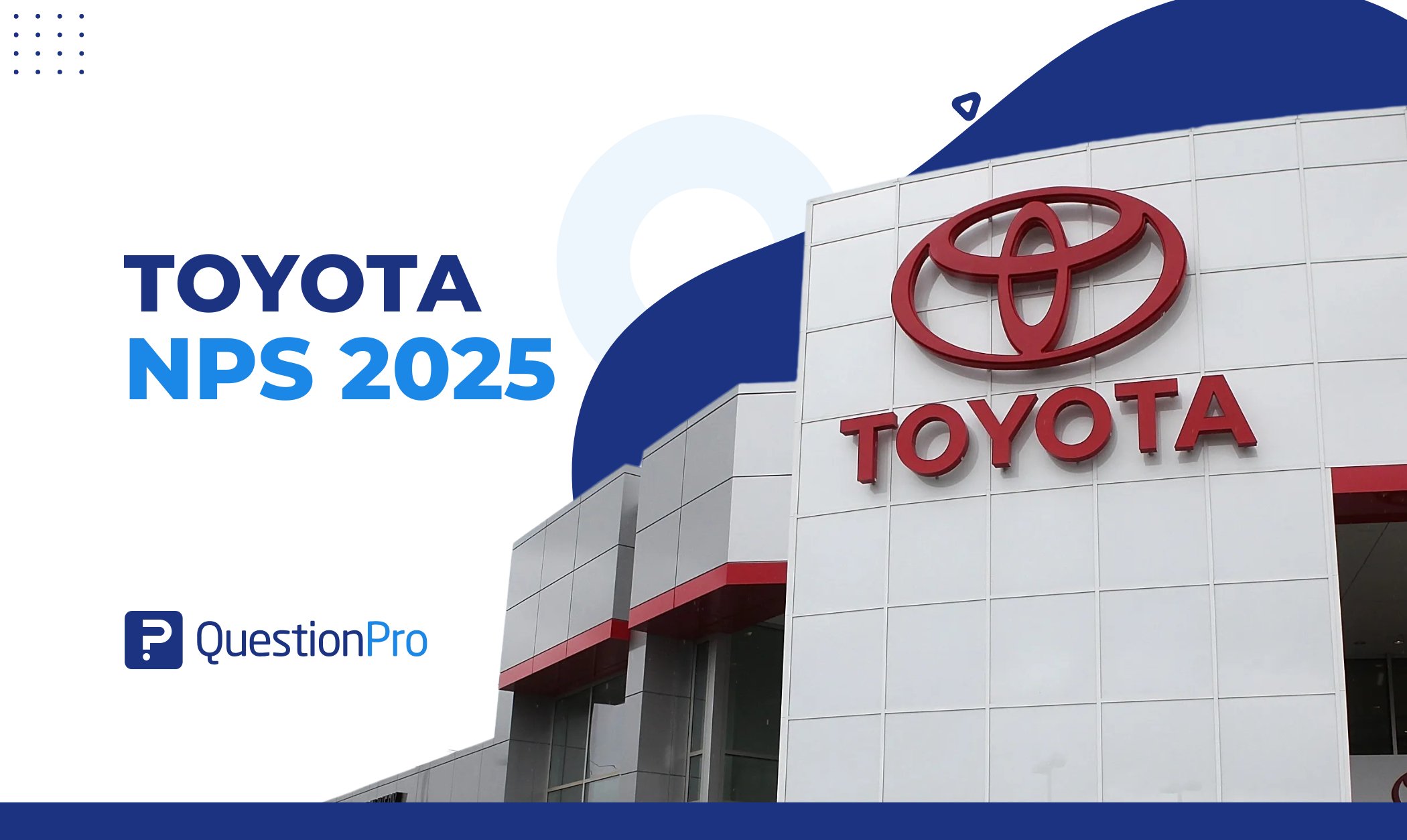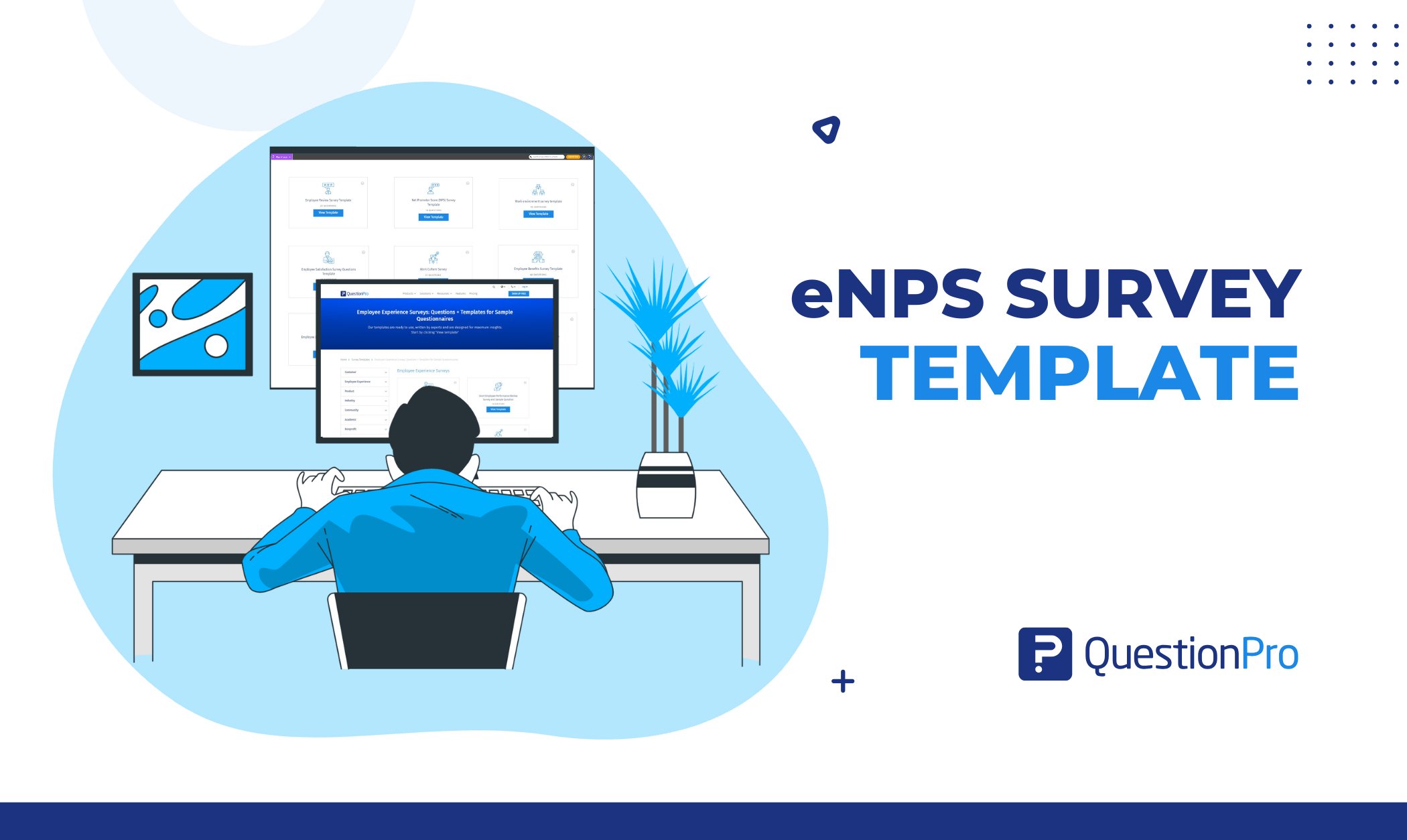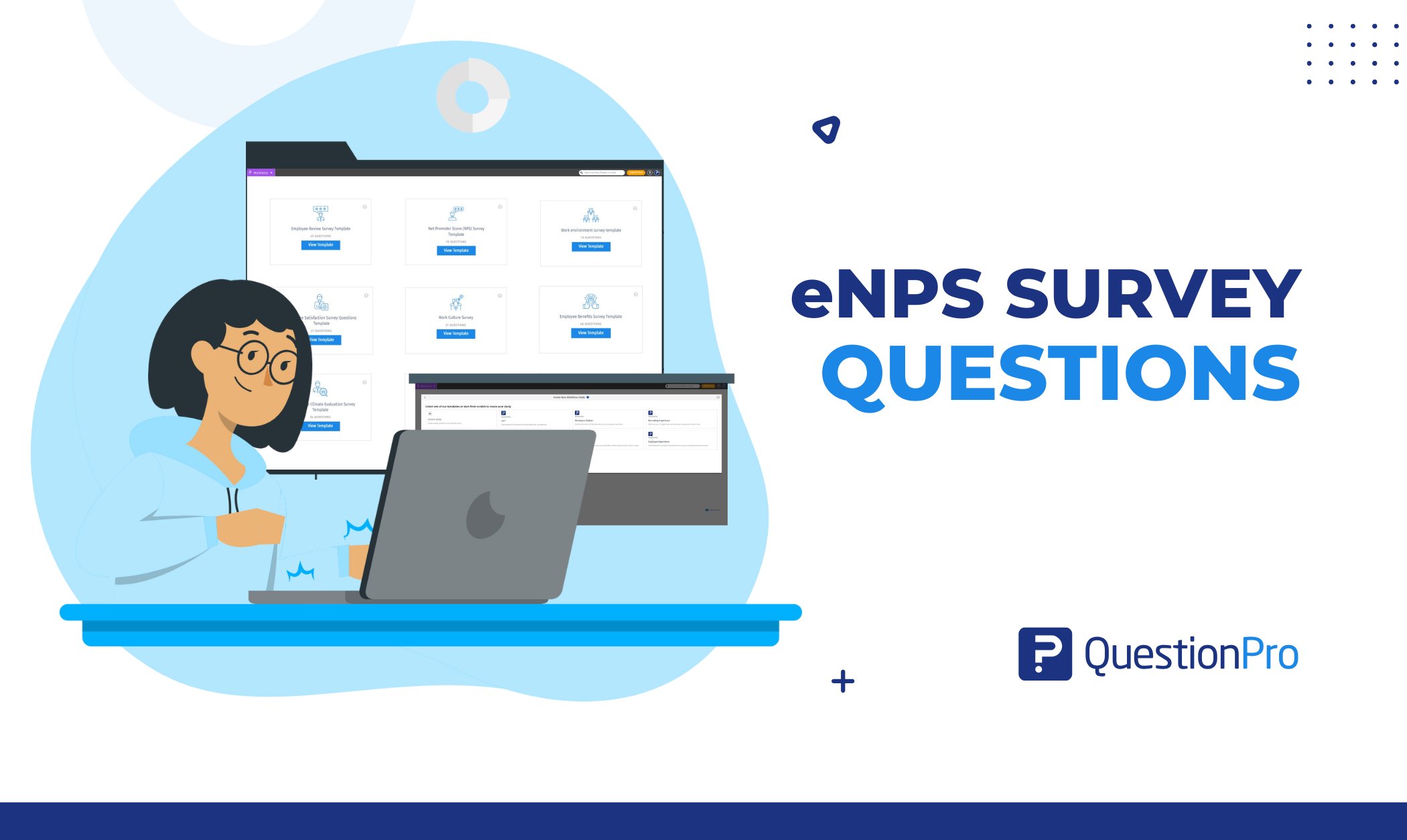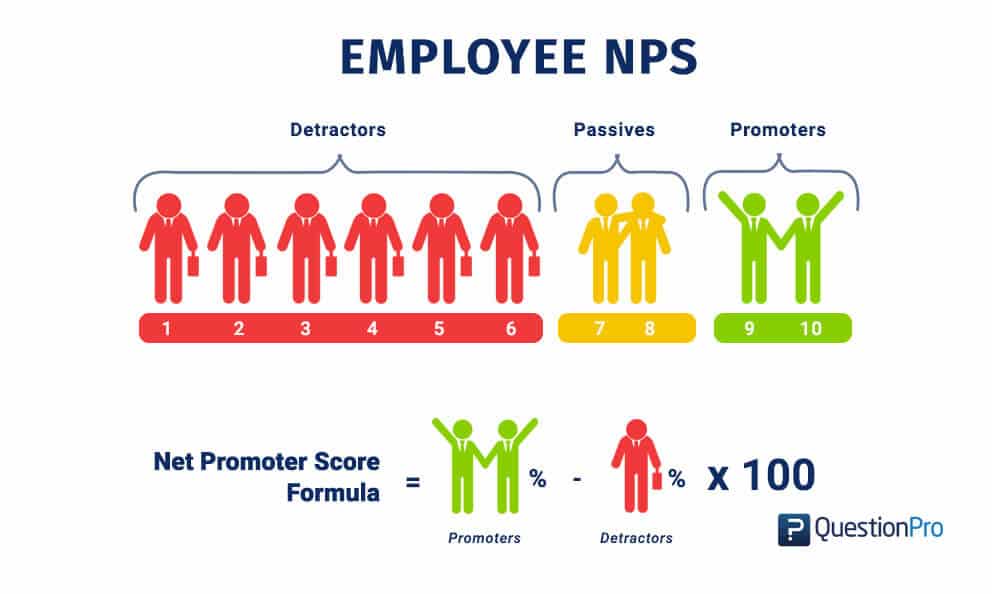
Measuring employee engagement is not simple and important for your organization. You need to go beyond numbers and quantifiers because the concept is so abstract. This is where the use of employee net promoter score (eNPS) comes into play.
eNPS is a survey-based method of determining whether employees are happy, satisfied, and loyal to their workplace.
eNPS is one of the most effective metrics for gaining insight into your employees’ feelings and opinions. It enables you to assess the impact of your current business practices on employee satisfaction and engagement levels.
In this blog, we will discuss employee Net Promoter Score and provide a free guide to help you understand it better. So, let’s get started.
What is Employee Net Promoter Score (eNPS)?
Employee Net Promoter Score (eNPS) is a method built around the Net Promoter Score (NPS) to measure employee loyalty. It measures how willing your employees are to recommend their workplace to their family or friends.
Imagine having dedicated and loyal employees in your organization. Imagine having a team of employees who go above and beyond to provide exceptional, incredible service to keep your customers happy and improve customer satisfaction.
Employee Net Promoter Score gets praise for its compactness, preventing survey fatigue, ease of calculating the results, and the ability to benchmark it and repeat it at sufficient intervals because it is simple. All these attributes certainly put eNPS survey software in a more efficient place.
However, if you combine eNPS with other HR metrics or HR analytics, you will know why employees give negative feedback. It will uncover the reasons behind employee performance evaluation and help you with ways to improve it. You can also determine if they feel motivated enough to work in the organization.
LEARN ABOUT: HR Analytics
Employee Net Promoter Score (eNPS) in Survey Question
eNPS is built around the same concept as Net Promoter Score (NPS), originally developed by Fred Reichheld, Bain and Co., and Satmetrix in the 1990s. NPS is used to measure customer loyalty, whereas eNPS indicates employee loyalty.
NPS is calculated based on the responses to the question:
“On a scale from 0-10, how likely are you to recommend our product/service to your family or friends?”
eNPS is calculated based on the responses to a similar employee survey question. Instead of products and services, eNPS questions help organizations measure employee loyalty:
“On a scale from 0-10, how likely are you to recommend our organization to your family or friends?”
LEARN ABOUT: Good Net Promoter Score (NPS)

As with NPS, the eNPS answers are divided into three categories:
- 0-6: Detractors: employees who are highly dissatisfied with the organization and spread negative word of mouth.
- 7-8: Passives: employees who are neither emotionally invested nor disengaged.
- 9-10: Promoters: extremely loyal employees to the organization and spread the positive word around.
Promoters
A respondent is considered a promoter when they score either 9 or 10.
Employers should not get relaxed if they see a 9 or a 10 in most responses. It’s easy to think that the employees scoring your organization high are already happy, and you don’t need to focus on them.
However, organizations should stay focused and use the promoters’ feedback to see why they like the organization and why they mentioned referring your organization to their friends and family.
LEARN ABOUT: Workplace Employee Experience Examples
Passives
A respondent scoring between 7 and 8 is considered passive or neutral.
They are considered passive because it is assumed that they will neither promote the organization nor say anything negative. They are generally satisfied, but since they don’t directly affect the organization’s feelings, little emphasis is given to them. They display a more neutral behavior.
But does this mean that an organization should not pay attention to them or ignore them because they cause no harm? If an organization has a similar attitude, they must change it immediately. Even though their score is not considered while calculating eNPS, don’t ignore their feedback. Consistently work to make them promoters. Your end goal should be to convert them into promoters.
Instead, you can ask them a simple question: ” What is holding you back from referring your family/friends to this organization?”
More than anything, create a culture of feedback in your organization where anyone can share or express it freely.
Detractors
A respondent is a detractor when they give a score between 0 and 6.
What does this score mean? It means the employee is extremely unhappy with the organization. Certain things are bothering them, and you, as an organization, need to identify the issues and get to the root cause.
The first step is to find out why they are unhappy and the reason for poor feedback. Something is bothering them, and you need to get to the bottom of it. Find out what’s on their minds, tell them not to be scared, and share their thoughts.
Whenever you get negative feedback from an employee, you should induce a mechanism where the dissatisfied employee is immediately sent an email asking what went wrong or why he/she is not happy with the organization. You need to genuinely care and communicate to the entire organization that their feedback is valuable by implementing the changes they want.
High employee attrition is terribly annoying and painfully expensive. One step in the right direction can prevent organizations from gaining a bad reputation and low employee net promoter scores.
Employee Net Promoter Score (eNPS) Formula, Calculation & Example
The employee Net Promoter Score is the number of promoters minus the number of detractors divided by the total number of respondents multiplied by 100.
Therefore eNPS formula is:
|
eNPS= No. of Promoters – No. of Detractors/Total No. of Respondents x 100 |
Nation-wise Employee Net Promoter Score Calculation Example:
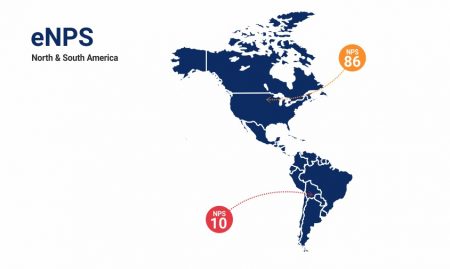
Let’s take an example: Company X wants to know about employee satisfaction and loyalty in its offices in North and South America. It sends the survey to its employees working in these regions.
They receive 5000 responses from employees in North America and 1000 responses from LATAM employees.
Let’s break down these responses.
You have received a total of 5000 responses (North America)
- 100 responses were in the 0–6 range (Detractors)
- 500 responses were in the 7–8 range (Passives)
- 4400 responses were in the 9–10 range (Promoters)
Using the eNPS formula: 4400-100/5000 *100= 86
ENPS is always shown as a whole number and never as a percentage. Hence, your eNPS is 86.
You have received a total of 1000 responses (LATAM )
- 400 responses were in the 0–6 range (Detractors)
- 100 responses were in the 7–8 range (Passives)
- 500 responses were in the 9–10 range (Promoters)
Using the eNPS formula: 500-400/1000 *100= 10
It is always shown as a whole number and never as a percentage. Hence, your eNPS is 10.
From the calculation above, it is evident that the organization needs to analyze the reasons behind a low eNPS score.
Region-wise eNPS Calculation Example:
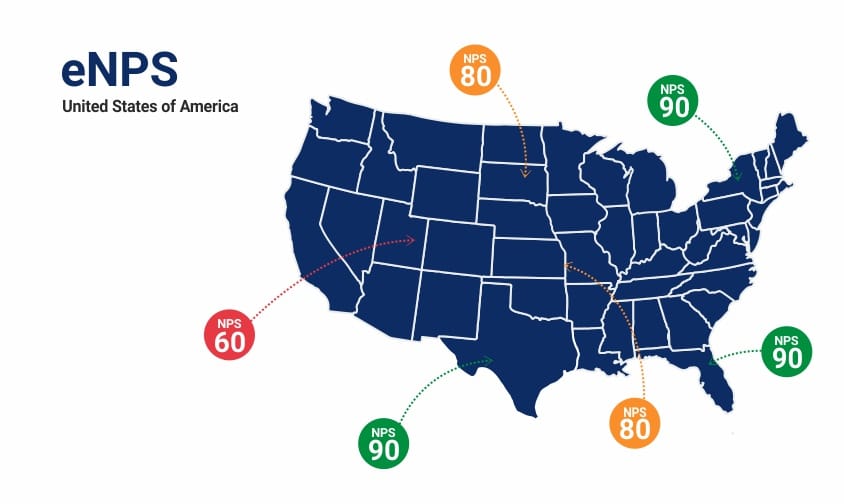
The same organization conducts employee Net Promoter Score surveys for employees in North America’s six regions.
They receive the responses and calculate their employee Net Promoter Score (eNPS) in the formula. Following were the scores:
- eNPS for Region 1: 80
- eNPS for Region 2: 90
- eNPS for Region 3: 90
- eNPS for Region 4: 80
- eNPS for Region 5: 90
- eNPS for Region 6: 60
Clearly, from the eNPS score region, 6 needs improvement in employee job satisfaction to get a higher eNPS score.
City-wise eNPS Calculation Example:
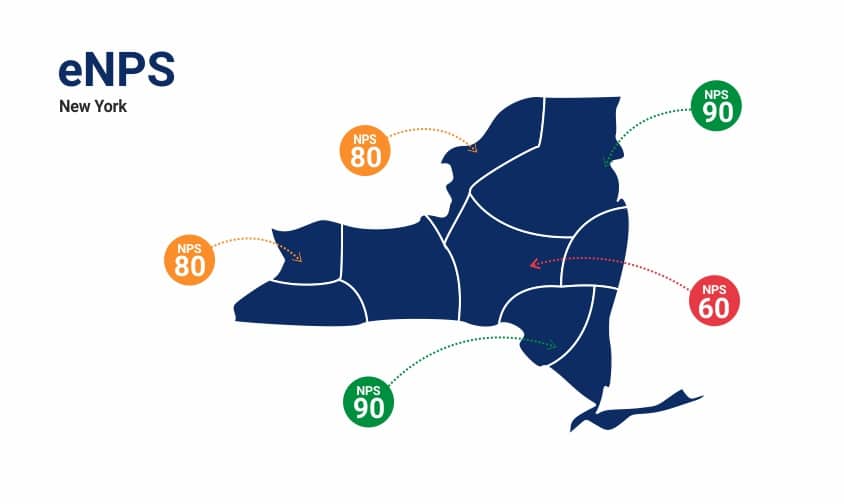
Let’s assume that the same organization has five offices at different locations in the same city, and they want to know the eNPS score for all of their offices. They sent out a survey to all the employees in the five different locations, and the following are the results obtained by applying the eNPS formula:
- eNPS for Office 1: 80
- eNPS for Office 2: 90
- eNPS for Office 3: 60
- eNPS for Office 4: 90
- eNPS for Office 5: 80
Since office 3’s eNPS score is 60, it will need to improve its employee experience and satisfaction to improve its eNPS score.
Employee Net Promoter Score (eNPS) calculation can be implemented at various levels, as shown in the above examples.
Learn more: Net Promoter Score Calculation and How it Works
Benefits of Calculating Employee Net Promoter Score
The importance of eNPS cannot be denied. Here are the benefits of calculating the Employee Net Promoter Score:
- It helps you gauge employee loyalty: Employee Net Promoter Score is a quick way to measure employee engagement and the organization’s health. The best thing about this is that it beats the traditional long, boring surveys, hands down. Thus, it helps in gauging the levels of employee loyalty by asking just one survey question.
- Reduce employee attrition: By measuring eNPS and other HR surveys or HR metrics, organizations will be able to prevent high attrition rates by putting together a contingency plan. The responses an organization receives when deploying the eNPS survey will help determine whether employees are happy or not. Thus, corrective measures can be taken immediately.
- It gives organizations a chance to convert negatives to positives: The eNPS survey can help organizations convert their detractors to promoters by implementing specific changes in the system. Every time you receive a negative response from your employees, an automatic system triggers an email asking about what is not going well with them in the organization. Collect feedback and make sure to act on it.
Employee Net Promoter Score (eNPS) Benchmark and Tips
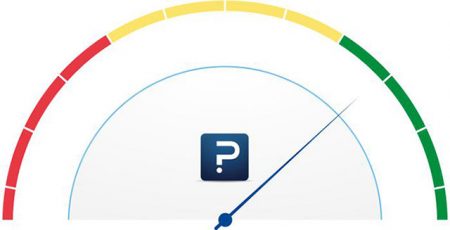
Employee Net Promoter Score may also be subject to cultural differences, and the scores may vary in different regions or countries, with employees less likely to give a high score. eNPS doesn’t always provide information subject to the context.
Many experts discourage considering other companies or industries as benchmarks for eNPS. On the contrary, experts say that organizations should start with a score and work on improving it. Harvard Business Review explains that the eNPS inspires companies to provide remarkable service, which will then bring customers back and continuously improve the business. This emphasizes how imperative it is to drive a successful company forward.
There are fair chances that an organization’s eNPS may be lesser than its NPS, as employees who work for an organization expect more from it than customers do. This awareness can help organizations interpret employee Net Promoter Score. Forbes magazine emphasizes the importance of utilizing your eNPS efficiently and how it can help propel your business forward.
However, here are some tips on how to use the eNPS effectively to get better results:
- Your organization’s management should know why the survey is being administered to the employees. The methods of following up once the responses are collected should be pre-determined.
- The survey will yield better results if it is responsive and can be accessed even with hand-held devices like tablets or mobile phones so that employees can answer them quickly and easily.
- At any given point in time, the survey should be anonymous. Employees should be guaranteed that their identities are not at stake. As an organization, if you fail to give them this assurance, the results will be diluted. You will not receive unbiased responses from your employees.
- Employee happiness isn’t a one-time business. If you can’t remember the last time you asked your employees if they were happy in the workplace, then the time to ask is now! Employee engagement and employee satisfaction are the two pillars of an organization, and employers should be able to track them from time to time. Experts suggest that these surveys should be sent out quarterly, which is frequent enough that the employees won’t be irritable about filling them out.
How QuestionPro help in developing employee net promoter score (eNPS)?
Ignoring employees and sending out yearly or quarterly surveys can result in biased or abandoned responses. Scheduling and planning Employee NPS surveys at the correct frequency helps track development. You can see your progress.
QuestionPro is survey software that can measure employee net promoter score (eNPS) by helping organizations collect employee feedback. Here’s how QuestionPro can help you measure eNPS:
- Customizable eNPS survey: QuestionPro provides an adaptable eNPS survey template businesses can use to get employee feedback. The survey can be changed to include questions and branding elements that are specific to a company.
- Automated Data Collection: QuestionPro’s online platform lets companies send eNPS surveys to employees via email and collect their feedback instantly. As a result, collecting data is quick, effective, and trustworthy.
- Data Analysis and Reporting: QuestionPro offers dashboards that let businesses view and examine eNPS data in real time.
- Integration with HR Systems: QuestionPro integrates with several HR systems, allowing organizations to combine eNPS data with other employee information. This allows organizations to get a complete picture of employee satisfaction and can help inform HR decisions.
LEARN ABOUT: Employee Care
QuestionPro assists businesses in measuring eNPS by giving them a configurable survey template, automating the active or passive data collection procedure, offering real-time data analysis, and integrating with HR systems.
You can use employee opinion survey questions. Those questions provide valuable insights into employee morale, enabling organizations to make informed improvements and foster an engaged workforce.
The Employee Net Promoter Score (eNPS) is a valuable tool for measuring employee satisfaction and engagement. QuestionPro Workforce can help you easily implement an eNPS survey and provide the insights you need to make informed workforce decisions.
Schedule a demo to see the full range of QuestionPro Workforce capabilities. Our team would be delighted to walk you through the platform and demonstrate how eNPS can drive positive change in your organization. Don’t put it off any longer; take the first step toward better understanding your employees!




